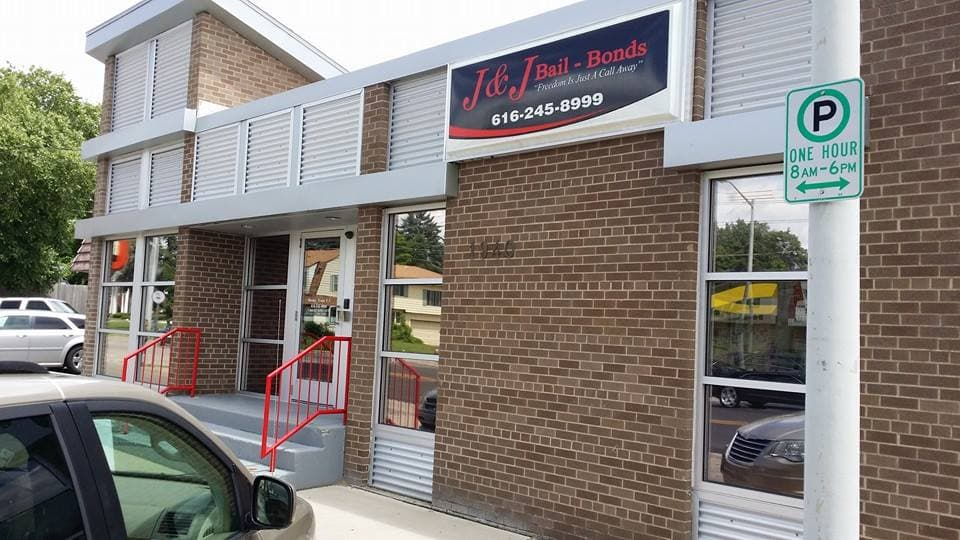The Crucial Role of Bail Services in the American Justice System

Navigating through the interlinkings of the American Justice System requires understanding various elements, one prominent of which is Bail Services. Essentially, these services underline the process wherein a defendant secures financial assurance to secure their pretrial release. The system works with the simple yet crucial premise: pay the set amount and obtain temporary freedom during the pending trial.
Functioning as a crucial instrument in the justice system, ,, Bail Services play a dual role. On one hand, they exemplify the extension of the presumption of innocence until proven guilty. On the other, they act as a guarantee that the defendant will appear in court for the trial proceedings. Central to the justice system, Bail Services echo the system's goal - striking a balance between the right to freedom and the need for adequately answered justice.
The mechanics and legality surrounding Bail Services may seem intricate, but their role in upholding justice cannot be underestimated. They provide a unique blend of legal and financial assistance designed to protect defendants' rights while maintaining the sanctity of the justice system.
Understanding How Bail Services Work
The Role of the Bail Bondsman
The linchpin in the Bail Services industry is undeniably the bail bondsman. Taking centerstage in, Bail Bonds Agencies , the bail bondsman acts as a benefactor, providing Financial Bail Assistance during the most critical times. Dysfunctions invariably occur as the justice system processes a high number of cases, and a defendant might not always have the economic wherewithal to meet the bail demands— this is where the bail bondsman steps in.
His role extends from securing a defendant's quick release to ensuring their mandatory court appearances. The bail bondsman effectively negotiates a Judicial Surety Bond, allowing defendants to reclaim their day-to-day life while awaiting trial. Ultimately, the bail bondsman plays a significant role in Defendant Rights Protection by ensuring the principle of innocent until proven guilty.
Adherence to Bail-related Rules and Regulations
While integral to the justice system, it's important to understand that bail services aren't a free-for-all. They operate under stringent rules and regulations, often seeing substantial variation across states, highlighting the necessity of Legal Compliance in Bail Services. In some states, commercial bond practices may hold sway, while others might rely on Pretrial Release Services or employ risk assessment strategies.
Regardless of the approach, the underlying premise remains steadfast, that is, to ensure equal justice opportunity for all. The legal expectations from Bail Bond Agencies stretch far beyond bail provision to include strict reporting of defendant's status, potential breaches, and ensuring Defendant Court Appearance. Just as the justice system seeks to maintain a balance, so do Bail Services, establishing a bridge between the court's demands and the defendant's rights.
The Financial Aspects of Bail Services
Finance lies at the heart of the bail services. To start, the bail amount is determined in a bail hearing. Factors such as the gravity of charges, past track record, potential flight risk, and public safety concerns are integral to this process. While the intent is to ensure a fair system, sometimes, concerns over the Bail Fees Structure may arise.
To navigate around financial barriers, Bail Services offer diverse Bail Payment Methods and financing options. Whether it's full payment, property collateral, or enlisting the services of a bail bondsman to cover the bail with a percentage fee, options are available.
The Far-reaching Benefits of Bail Services
Maintaining the Presumption of Innocence
At the core of any justice system lies the principle 'innocent until proven guilty'. Bail Services hold the fort on this tenet by allowing for immediate release of defendants under financial assurance. Without bail, defendants could face unnecessary imprisonment, an antithesis to the Presumption of Innocence. Protecting a defendant's rights, therefore, forms a significant part of the bail services' mandate.
Another facet where bail services reinforce fair justice is through ensuring Fair Trials. Bail provides an opportunity for defendants to prepare for their trial in a suitable environment, enabling them to approach Legal Assistance and build a solid defense.
Mitigation of Overcrowding in Jails
A consequence of mass incarceration is the beleaguered state of jails across the American landscape. Overcrowding presents as a significant problem. However, bail services can provide a solution by reducing the detention of defendants awaiting trial. Recognizing this, Bail Agencies undertake Detention Reduction Services, attempting to strike a balance between maintaining public safety and preventing unnecessary jail congestion.
Encouraging Defendants to Appear in Court
Generally perceived as a financial tool, bail serves a remarkable role as an insurance policy of appearance in court. The threat of forfeiting the bail money acts as deterrence against defendants planning to evade trial. Carefully crafted mechanisms involving Bail Bondsman Role and Bail Payment Methods ensure this.
The consequences of evasion are considerable. From the forfeiture of bail money or property to additional charges, the costs of evasion could prove formidable. Bail Services, in their objective to ensure a Defendant Court Appearance, carry a unique power of persuasion. This persuasion not only maintains the integrity of the trial process but also inhibits further disruption to the justice system.
Criticism and Discussion Surrounding Bail Services
The Issue of Cost and Fairness
Like any vital system within the legal sphere, bail services aren’t without controversy – the discussion often circles back to the cost and fairness paradigm. Critics argue that the high cost associated with the Bail Fee Structure may be disenfranchising. It isn't unobserved that those from lower economic strata often find themselves at a disadvantage, unable to secure swift release due to high bail amounts.
The Commercial Bail Bonds aspect is currently a hotbed of controversy. It's been noted that the commercial aspect sometimes leads to prioritization of profit over justice, thereby compromising the original intent of bail. The calls for regulation or even elimination of Commercial Bail Bonds in favor of government-operated Pretrial Release Services grow stronger amidst such discussions.
The Call for Bail System Reform
In response to these concerns, voices advocating Bail System Reform have grown louder. Proposed changes range from implementing sliding fee scales based on the defendant's ability to pay to exploring alternative methods of defendant accountability. The overarching goal is to maintain innocent until proven guilty while ensuring the financial aspect of the bail system isn’t prohibitive.
Reform, undoubtedly, will impact the current Bail System. Some foresee an opportunity to create a fair, more equitable system that protects Defendant Rights. Others express concerns about overhauling a system deeply embedded in the American Justice System for centuries. Regardless, the prospect of reform generates a continually evolving dialogue about the role and future of Bail Services.
Exploring Alternatives to Current Bail System
An open dialogue about bail naturally brings alternatives to the table as potential solutions. Tools for Risk Assessment are one such alternative, replacing the cash-intensive bail system with data-driven methods to assess if a defendant can be safely released.
Then there are Pretrial Services Programs, which focus on supervision and support mechanisms as alternatives to cash bonds. Such programs allow courts to monitor defendants and provide assurance of Court Appearance, employing methods such as regular check-ins, drug testing, or electronic monitoring. In an environment where cash bail contention grows stronger each day, such alternatives provide a glimpse into what the future of the bail system might look like.









